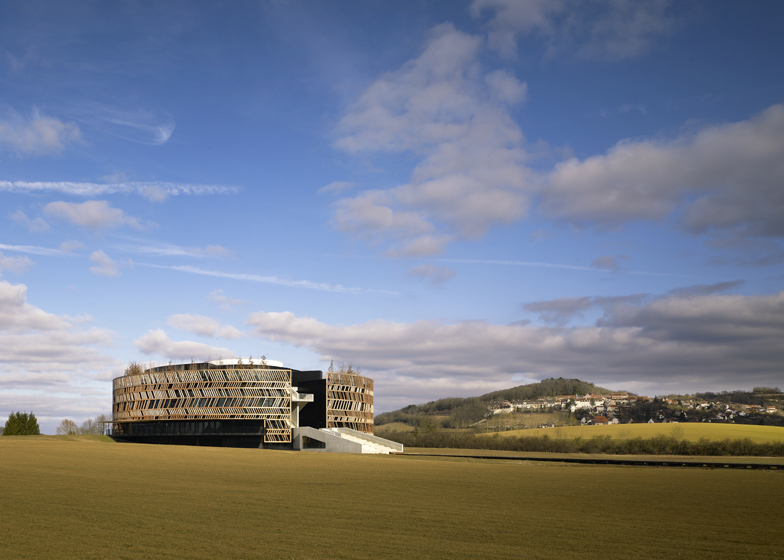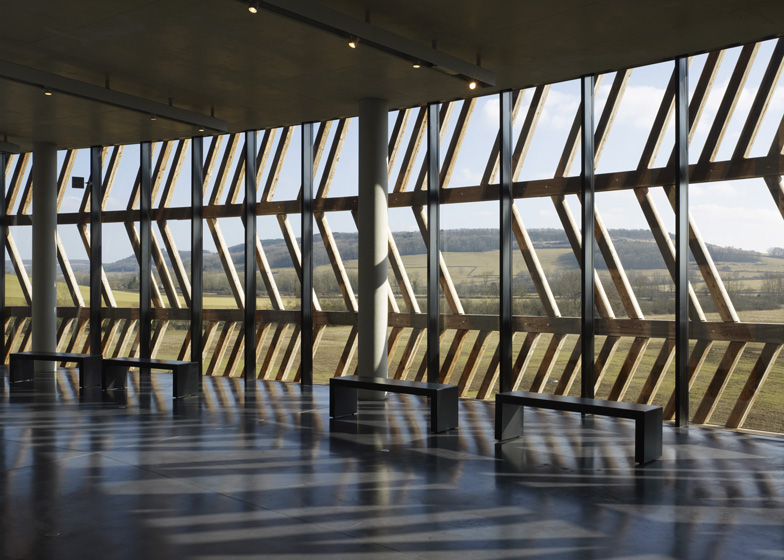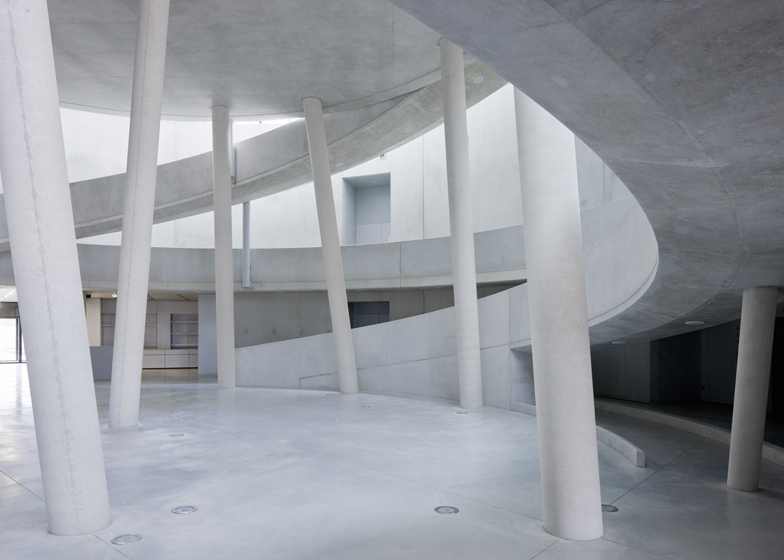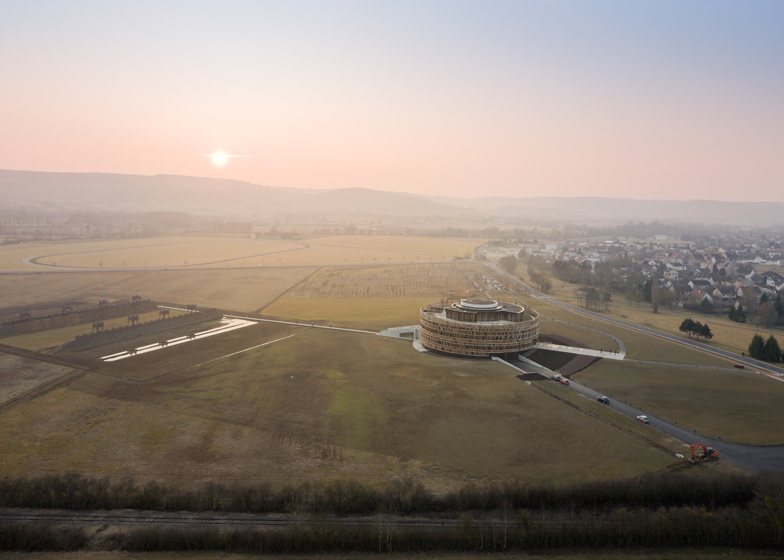Slideshow: a visitor’s centre with an ornate herringbone facade by Bernard Tschumi Architects opens this weekend on an archaeological site in central France.
The cylindrical centre occupies the same position held by the Roman army during a historic battle against the Gauls over 2000 years ago and its wooden exterior references the timber fortifications that would have been constructed nearby.
A second museum building, contrastingly clad in stone, is also being constructed a kilometre away across the battlefield and the pair will together comprise the Alésia Museum complex.
Exhibitions inside the visitor’s centre will portray the events of the battle and its aftermath, while the second building will present artefacts unearthed from the site.
A garden of grass and trees covers the roof of the visitor’s centre and will be accessible to visitors.
See more stories by Bernard Tschumi Architects here, including a bright red pedestrian bridge.
Photography above is by Christian Richters, while photography below is by Iwan Baan.
Here's some more text from Bernard Tschumi Architects:
Opening Day Set for Alésia Museum, First Phase
Part of a museum complex designed by Bernard Tschumi Architects, a new interpretive center on the site of the historic Battle of Alésia will open in a formal ceremony on March 23, 2012.
Located in Burgundy, France, the building marks the position of the Roman army, under Julius Caesar, and its encampment surrounding the Gauls under Vercingetorix in 52 B.C. The building will be open to the public starting on March 26th.
Tschumi’s design features a cylindrical building with an exterior envelope made of wood, a material that references the Roman fortifications of the era, some of which are reconstructed in an area a short walk from the building.
The roof of the building is planted with low shrubs and trees, so as to minimize the visual impact of the building when seen from the hill above (the historical position of the Gauls).
The materiality and sustainable elements of the building are meant to make visitors aware of the surrounding landscape, which appears much as it would have 2000 years ago.
A second building on the hill will mark the location of the Gauls, and has a similar geometry, but is clad in stone, evoking its trenched position.
Click above for larger image
The interpretive center will contain exhibits and interactive displays that contextualize the events of the Battle of Alésia and its aftermath.
Click above for larger image
The displays are intended to reach a broader audience than a museum, with a range of media and programs for all ages.
The second building will act as a more traditional museum, with a focus on found objects and artifacts unearthed from the site. The second building is scheduled to be completed in 2015.







